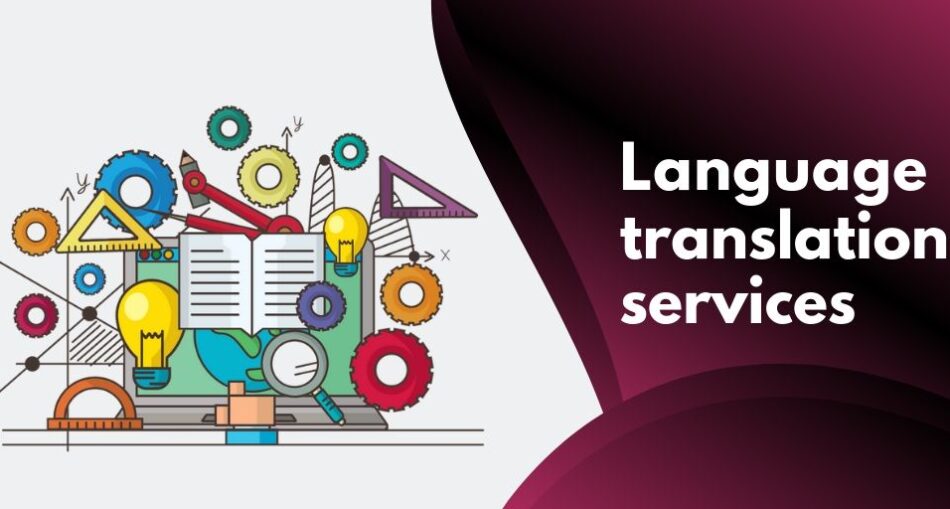Introduction: Two Sides of the Same Linguistic Coin
In a thriving, multicultural business hub like Dubai, communication is key. Whether you’re sealing a deal with an international client or welcoming tourists into your shop, your ability to convey meaning clearly can significantly affect your bottom line. But when faced with language barriers, should your business invest in translation or interpretation?
Although the two terms are often used interchangeably, they are fundamentally different—and each serves distinct purposes. This article breaks down translation vs interpretation and helps you decide which solution fits your business best.
1. Understanding the Core Difference
Translation: Written, Precise, and Permanent
Translation involves converting written text from one language to another. Think of it as taking a document—like a contract, brochure, or website—and recreating it in a different language while maintaining tone, style, and accuracy.
In the context of translation services in Dubai, this process is handled by certified professionals who often specialize in specific industries such as legal, medical, or marketing.
Interpretation: Spoken, Instant, and Live
Interpretation, on the other hand, is the oral conversion of speech between languages, typically in real-time. It’s what you see in international conferences, courtrooms, or business negotiations where two parties don’t share a common language.
Dubai’s international profile means there is high demand for both services—but which one should you prioritize?
2. When to Choose Translation Services
Written Materials: Clarity and Legal Compliance
If your business deals with written materials—legal contracts, manuals, marketing collateral, or e-commerce content—then translation is your go-to service. Precision is crucial, especially for documents that may be used in legal, regulatory, or formal settings.
Many organizations in Dubai prefer partnering with professional translation services in Dubai to ensure all written content meets both linguistic and cultural expectations.
Certified Translations: A Legal Must-Have
For immigration paperwork, visa applications, or governmental documentation, only certified translations are accepted. These come with a declaration of accuracy and are often required by UAE authorities.
3. When Interpretation Makes More Sense
Business Meetings and Conferences
Interpretation is ideal when you’re conducting live events like business meetings, press conferences, or training sessions involving multilingual participants. Real-time understanding ensures smooth communication and builds trust across language barriers.
Dubai frequently hosts international trade shows, diplomatic summits, and cross-border mergers—scenarios where professional interpreters are invaluable.
Customer Service and Tourism
If your business is in retail, hospitality, or tourism, interpretation can enhance customer experience. Having staff who can interpret on the spot, or using interpreter services remotely, helps you serve customers more personally and effectively.
4. Choosing the Right Partner in Dubai
Not All Services Are Equal
Dubai’s diverse marketplace has given rise to a variety of language service providers. However, quality varies widely. Choose agencies that not only offer both services but also tailor them to your industry.
When looking for translation services in Dubai, check if they offer:
-
Native-speaking professionals
-
Industry-specific translators or interpreters
-
Certification for legal and governmental documents
-
Localization and cultural adaptation
Technology Integration
Modern translation and interpretation services often integrate AI tools and apps, especially for speed and cost-effectiveness. While machine translation can be helpful for quick, informal needs, human oversight is essential for maintaining accuracy, nuance, and tone.
5. Cost Considerations and ROI
Is One More Expensive Than the Other?
Not necessarily. The cost depends more on the nature of the task. Translation pricing is usually per word or page, whereas interpretation is charged by the hour or session. Live interpretation—especially simultaneous interpretation—can be more expensive due to its complexity.
Return on Investment
When done well, both services pay off. Translated websites attract more customers, while interpreted meetings seal more deals. It’s not about choosing the cheaper option; it’s about choosing the more strategic one for your business goals.
6. Hybrid Solutions for Modern Businesses
Why Not Both?
Many businesses in Dubai find that a mix of both services works best. A hotel may translate its brochures and website, while also offering interpretation at the concierge desk. A law firm might translate contracts while arranging interpretation for court proceedings.
In this multilingual environment, being equipped for both written and spoken language needs gives you a competitive edge.
A Real-World Example
Imagine you’re launching a new product in Dubai. You’ll need translation for packaging, manuals, and marketing materials. But you’ll also need interpretation for your launch event, staff training, and customer demos. Partnering with a provider that understands this hybrid need is key to success.
Conclusion: Tailoring the Solution to Your Business
Ultimately, the choice between translation and interpretation isn’t about picking one over the other. It’s about understanding your business’s unique needs and finding the right service—or combination of services—to support your growth.
In Dubai’s multilingual marketplace, where business opportunities span continents and cultures, communication is everything. Investing in quality translation services in Dubai and professional interpretation ensures your message isn’t just heard—it’s understood.







